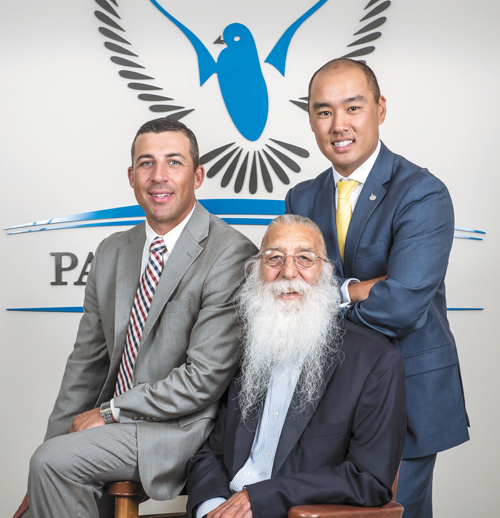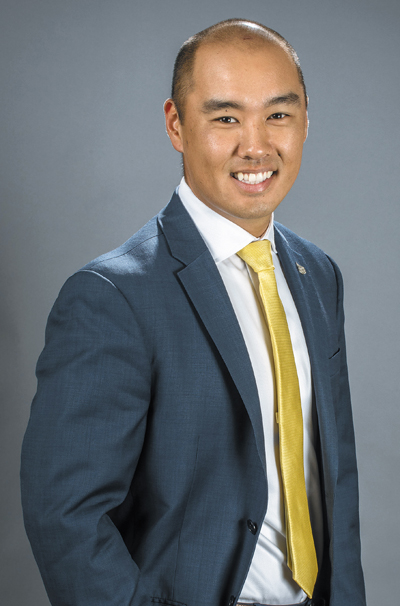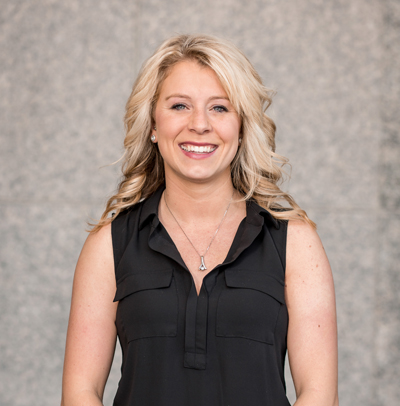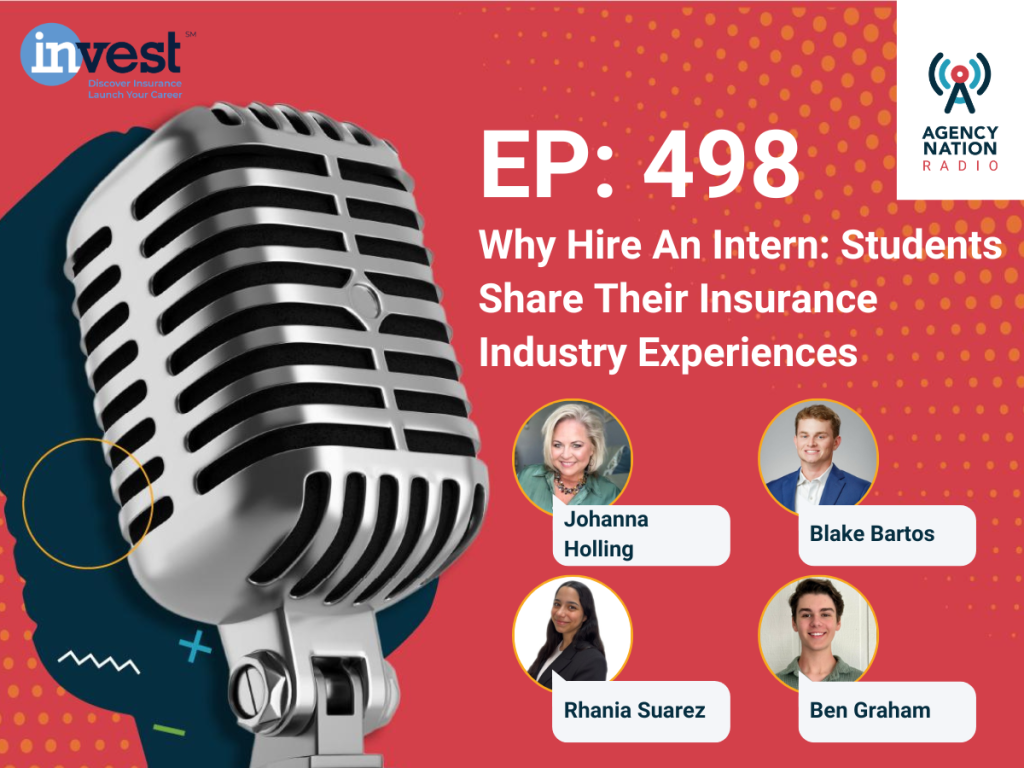In Our Own Words: 3 Real-Life Perpetuation Stories
By: Zuri Malick, Kyle Dean & Kali DeWitt
 Zuri Malick was a junior in college when his father asked him to take the reins of the agency that had been in the family for three generations.
Zuri Malick was a junior in college when his father asked him to take the reins of the agency that had been in the family for three generations.Malick refused—until, a few years later, he realized running an independent agency is more than just a job. It’s an opportunity to make a difference.
Perpetuation remains a serious challenge for the independent agency system: The average age of independent agency principals with 20% or more ownership in their agencies is 55 years old, and 17% of them are 66 or older, according to the latest Future One Agency Universe Study.
But whether by choice or necessity, many principals are beginning to realize they can’t leave the futures of their agencies to chance. In their own words, here are three stories from independent agents who are taking part in the successful perpetuation of not only their individual businesses, but the independent agency system as a whole.
Pictured: Zuri Malick (right) and business partner Chris Flanz (left) took over The Parker Agency from Zuri’s father, Harvey Malick, Jr. (center), in 2014.

ZURI MALICK
PartnerThe Parker Agency
Manasquan, New Jersey
My father, Harvey W. Malick Jr., is the third generation of our agency, which dates back to my great-grandfather. As my father was approaching retirement, he asked me, then in my junior year at Loyola, if I wanted to work for him. I rejected his offer.
My life was just beginning. My father’s was slowly edging towards retirement. After my rejection, he pursued merger & acquisition options but got cold feet at the prospect of losing the legacy of our agency.
The Parker Agency started soon after the Great Depression, and we’ve been family-owned since the 1930s. Located in the coastal town of Manasquan, New Jersey, the agency has always had a strong personal lines focus, with small commercial making up only about 25% of the book. Parker once employed eight staff members, but that number decreased to four by my father’s design. He no longer actively solicited business and was making a decent living off his renewals and a 95% retention rate.
Meanwhile, I had graduated and started working in retail in Baltimore. I guess it happens to everyone, but while watching from my fourth-floor apartment as I got yet another parking ticket, I decided that each of us must do the things that matter. Retail wasn’t it.
My father was delighted at my decision to join him. At our first meeting, he told me he wanted me to run the office within two years and anticipated minimal involvement himself. I had to commit to this plan and fully engage in education, networking and involvement in insurance associations.
During this process, I met an accomplished insurance agent, Chris Flanz, who was my age and working for a large agency. He craved ownership as much as I did, and we became friends.
After a few months, my father recognized an opportunity and offered me and Chris the chance to become owners. We laid out our plan based on the philosophy that if we tackled the easiest steps first, we’d make steady progress. Unfortunately, that didn’t quite work out.
There is much more to consider in a perpetuation process than the nuts and bolts of financing and contracts. While those are extremely important, you can’t underestimate the goals and personalities of each party.
My father had a longtime partner we needed to buy out before she retired. We thought this would be the easy part, but it turned out to be a tremendous struggle. The agency had to borrow significant funds for the purchase of her stock. Since it wouldn’t be long before my father stopped working and selling, he would no longer be involved in paying off the loan. He agreed that Chris and I should receive shares of stock to represent the loan amount. This “gifting” occurs on a yearly basis until the loan is paid off.
To solve the perpetuation process, we now had three parties involved, which means at least three lawyers. We learned quickly that we couldn’t depend on them to come up with innovative ideas. We also had to emphasize to each attorney that we were not adversaries in order to ensure that the final terms were fair to everyone. My father, Chris and I were all in agreement as to how, why, where and when, so we dictated the agreement—the attorneys merely put it into legal terms.
Following the same idea we used to secure the loan for purchasing the stock of my father’s former partner, we established a base price for the stock, not to increase as the agency gained more revenue. We all agreed that Chris and I shouldn’t pay a higher price for the stock in a few years when we were the ones who created the increase. The agreement dictating our stock purchase follows a prescribed formula regarding from whom to purchase it first, second and so forth. But the purchase timeline is flexible, enabling Chris and me to choose our actions based on when they will be most economically sound.
After successfully buying out my father’s partner and ironing out the legal details, Chris officially came to work as partner and managing director. My father gave us free rein, so the two of us spent long hours brainstorming and laying out our future plans as owners. We wanted to move the agency in different directions, retaining all our personal lines but quickly increasing our commercial lines business and entering the life-health space. This required getting appointed with new carriers.
We selected a few niche areas and began to market them. So far, we’ve managed to achieve all our goals. Over the first three years of our ownership, the agency has grown an average of 35% per year.
One of the biggest challenges to consider in the perpetuation process is what you want your agency to look like once you’re done with the plan. What’s your leadership style? What do you know about human resources, accounting and ownership? Most important, how do you plan to gain the trust of the employees that have been with the agency for decades before you?
I suggest leaning on your carrier partners for help. I’m part of a leadership program with Selective Insurance Company of America that involves everything from participating in roundtable discussions with current leaders to breaking down personalities to determine leadership styles.
To avoid becoming like a working dog that eats the sofa when he’s left home alone, my father continues to work part-time in our office, but in a non-insurance capacity. He offers advice, but only when we ask for it. His agreement includes a small lifetime stipend as a consultant, and we seek his expertise on occasion.
The best way to know the future? Create it yourself.
![Dean Dean]()
KYLE DEAN
President & CEODean & Draper Insurance Agency
Houston
Following my father’s unexpected passing in July 2013, I took over as president & CEO of Dean & Draper Insurance Agency. A family business since its inception in 1980, Dean & Draper has grown to become an insurance powerhouse. My father, Bob Dean, was an experienced insurance professional who was committed to unparalleled service and care to both customers and employees.
The transition tasked me with managing and advancing the company to remain competitive. Preparing for perpetuation is always difficult, but managing people, money and leadership in the wake of such a monumental change is even more challenging for any new leader to handle.
At 37, I am one of the youngest CEOs at an agency the size of Dean & Draper. The perpetuation process hasn’t always been easy, but my father’s foresight—paired with careful consideration on my part, and support from my leadership team—helped guide the agency into its next generation of leadership.
First, my father was adamant about having his estate in order. In 2006, he began working on his estate in earnest—he wanted to provide a solid foundation for perpetuation should anything happen to him. Strategically planning your estate so it will be able to survive an audit, while providing as much documentation as possible, is key. I’ve also learned that being up front and honest is the best policy throughout perpetuation.
If you think that your estate, regardless of your business, is larger than the federal estate and gift tax exemption, plan wisely. Secure life insurance to cover any amount over the exemptions so your business and successors won’t suffer as they begin to plan for life when you’re gone. My father’s executor helped set his perpetuation plan into motion after his passing. Choosing a wise executor is one of the most important decisions you will make as you develop your plan.
You’ll also need to clear emotional hurdles. My father discussed his perpetuation plan with me and made it clear that he expected me to continue the legacy he built. I always imagined he would be there when that happened—that I would have him by my side to talk to about the tough decisions. But when he passed, I was in a position where I had to shoulder the responsibility on my own. I never fully understood the role until I sat in that office. I was incredibly fortunate to have a wonderful leadership team that supported the tough decisions I had to make during that time. In perpetuation, a team of great people can make the difference between success and failure.
I spent a lot of time making the decisions I thought my father would have wanted. One day, thanks to the advice of a close friend, I realized he would have wanted life to go on. I needed to protect the agency and the livelihoods of my employees. In the four years of our perpetuation process, we’ve not only kept the agency on track—we’ve also been able to grow. For the first time in my career since my father’s passing, I feel like I’ve risen above the fog and am now able to make significant changes. I’m focused on creating more efficiency and keeping the momentum of the agency on track.
Looking ahead, I am dedicated to continuing the perpetuation my father helped plan. I’m only 37 years old and I don’t intend to sell, so I want to continue perpetuating the agency to the best of my ability. Building a leadership team for the future is one of my main focus points, along with making changes to keep the agency moving forward. I have a 10-year plan to grow the agency, and bringing in superb talent is the first step.
While I plan to continue my father’s legacy, I also understand that keeping that legacy alive depends on making the business my own. It’s never going to be easy, but by keeping my eye on the prize and creating my own perpetuation plan, Dean & Draper will continue to thrive long after I am gone. I intend to grow the agency into something bigger—and hopefully pass on the legacy to future generations. KALI DEWITT
KALI DEWITT
ProducerDeWitt Insurance Group
Indianapolis
If you told me 10 years ago that I would end up following in my parents’ footsteps, I would not have believed you. Insurance was not even on the radar of career prospects for me. But here I am, three years into the gig—and loving every day.
So how did I get here? After graduating from Purdue with a bachelor’s degree in selling and sales management, I found myself wondering what area of sales I would excel in. I always enjoyed my entrepreneurship classes, but my heart wasn’t set deep enough on an idea to devote my entire life to building and developing one.
I decided to take a position as a technical account manager for a startup IT firm, where I gained experience but was never fully invested—cold-calling large corporations just wasn’t my thing. Fortunately, I figured out early that the career path I was on was not what I wanted to do with my life.
My parents, Jim and Kara DeWitt, started DeWitt Insurance Group in 2008 with zero dollars on the books. I watched from the sidelines as they hustled to make connections and build relationships. In 2013, I was still working at the IT firm, unhappy and constantly searching job listings, when my mom suffered a stroke that left her unable to continue working at the agency.
After discussing options with my parents, I realized everything I watched them achieve over the years was exactly what I was looking for: educating clients, helping people financially and networking—all while building something of my own. So what did this prudent 22-year-old decide to do? I put in my two weeks’ notice and started calling friends and family to quote their insurance.
Three years later, the agency consists of my dad and me. We spent the last year heavily marketing the agency. Now, we’ve reached the point where we can look toward the future and start hiring more producers, followed by a customer service representative. The goal is for us, as leadership, to be able to shift our focus to selling and strategizing.
Since joining the agency, I have been involved in all the day-to-day operations, working as a partner alongside my dad. For that reason, we anticipate that the eventual ownership transition will be somewhat straightforward: My dad will slowly start to step down, and I will take the reins.
Of course, it won’t be quite as easy as I make it sound. We have a lot of details to hammer out before we get there. Communication was a challenge at first, but it has definitely improved and will continue to do so throughout the remaining years, as this is something we actively work on. It also helps that my dad is confident in me becoming his successor. He recognizes that I get my strong work ethic from him, so he trusts my judgment.
In order to make sure our perpetuation plan is a complete success, we need to get our ducks in a row. Being transparent with our clients about the ownership change will be paramount. I can’t tell you how many people come to us and say their agent retired and they have not heard from the rookie that took over their policies. The last thing we want is for our clients to be unaware of the changes or not fully comfortable with the transition.
Looking ahead, as we begin to hire, I will be in charge of training. We want our employees to feel like they are their own bosses. They will have their own books of business to manage and maintain. We don’t see any reason to micromanage any of our future employees, but I will act as their direct supervisor until they are comfortable with their own autonomy.
In the meantime, my dad will be behind the scenes, completing managerial tasks and growing his own book of business. He’s not the type to retire at 65 and move to Florida—he’ll want to take care of his book until he physically cannot. But the time will come when I start taking more control. We still need to discuss this piece of the puzzle in more detail.
As we grow our business, we will continue to discuss future plans and transition needs. My dad and I both feel confident in the future of our company, and in me as the future lead.









